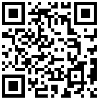We're well aware that excessive daytime phone scrolling can take a toll on mental wellbeing. But does the location of your device during the night impact your health too?
The health implications of mobile phones, particularly radiation emissions, remain a hot topic of discussion. A July 2023 Cancer journal study detected a weak correlation between cell phone usage and brain cancer fatalities. Co-author Shabbir Syed Abdul clarified to VeryWell Health, "It’s vital to acknowledge that conclusive findings are yet to be established."
Is bedtime radiation from your phone a real concern?
Dr. Neha Narula, Assistant Professor of Clinical Medicine at Stanford, reassures that radiation fears surrounding bedtime phone placement are unwarranted. She told Yahoo Life, "Currently, there's no proof suggesting long-term health impacts from smartphone or tablet radiation." Dr. Narula emphasizes that the non-ionizing radiation these devices emit, similar to that from microwave ovens, differs from ionizing radiation (like X-rays), known for DNA damage.
Though labeled a "probable human carcinogen" by the International Agency for Research on Cancer, concrete evidence of harm or safety is lacking.
How does phone proximity affect slumber?
Dr. Narula admits that while radiation isn’t a major worry, phone proximity can indirectly disrupt sleep patterns. Keeping your phone within arm’s reach encourages pre-sleep usage, which studies show leads to reduced sleep quantity and quality compared to those who unplug an hour or two beforehand.
"Smartphone engagement demands mental agility and alertness," she explains. "This stimulates wakefulness – counterproductive for winding down." Even brief phone checks can prolong this awake state, hindering sleep onset.
The impact of screen light on sleep
Phone usage before bedtime also introduces light pollution, a significant disruptor of our circadian rhythm. Our internal clock, tuned to a 24-hour cycle, relies on sunlight to signal alertness. Artificial light from devices confuses our system, suppressing melatonin production, the hormone responsible for sleepiness.
"Lower melatonin levels due to pre-bed phone use not only degrade sleep quality but also curtail REM sleep," Dr. Narula elaborates. "REM sleep, crucial for emotional processing and information consolidation, is vital. Its deprivation can impair cognitive function and increase stress levels."
Tailoring phone habits to individual needs
Rafael Pelayo, Ph.D., a Stanford sleep medicine professor and author of 'How to Fall Asleep: New Scientific Solutions for a Full Night’s Rest,' suggests personal phone habits dictate bedtime practices. Insomniacs, for instance, might find a bedside phone exacerbates pre-sleep anxiety, reducing total sleep time. However, the phone's presence may comfort others, like those living alone who value its security assurance.
"In essence, whether the phone beside your pillow is a sleep disruptor or a source of reassurance depends on your unique circumstances and psychological associations with it," he concludes. "It’s not just about the device; it's about what it symbolizes to you."



